Thai cocktail bars transformed in fight to survive COVID-19 impact
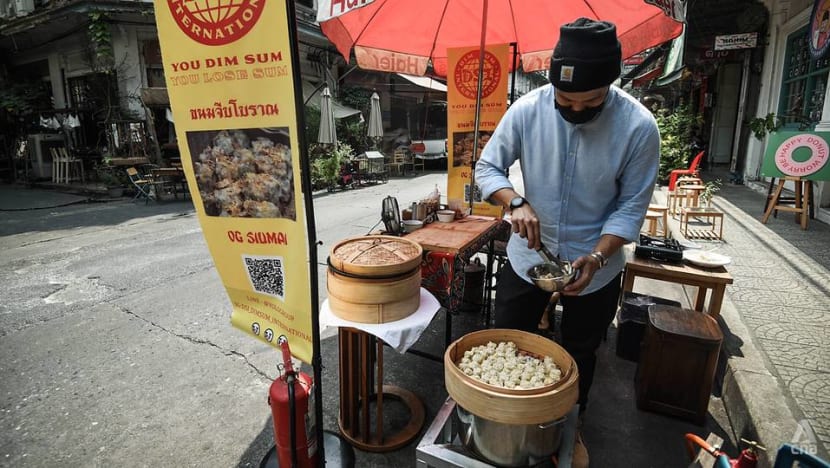
Niks Anuman Rajadhon places dumplings in a bowl outside his gin bar Teens of Thailand. (Photo: Pichayada Promchertchoo)
BANGKOK: Bottles of black liquid lined the bar, where cocktails would normally be concocted with different gins from around the world. But on this day, they contained black vinegar, used to complement the bar’s latest offering - dumplings.
A few staff members were outside manning a small pop-up stall that had become their main source of income since the year started.
For nearly two months, this has been the harsh reality for a hip gin bar in Bangkok’s old quarter, Teens of Thailand - a direct and financially damaging impact of the government’s order in early January to shut pubs and bars in an attempt to control a new wave of COVID-19 outbreak.
“At first we thought ‘Again?’. There was hardly any time to get prepared,” co-founder Niks Anuman Rajadhon told CNA.
"There was an emotional breakdown before we recalibrated and decided what to do next."
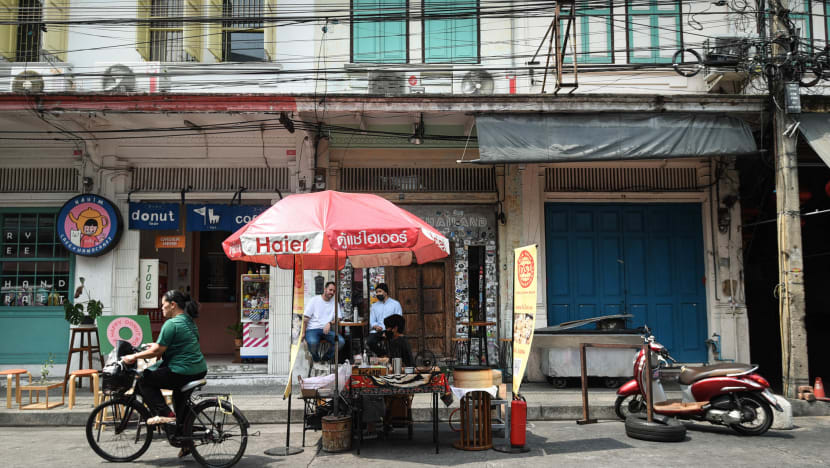
Weeks of zero alcohol sales have forced many bars to adjust for survival. For the likes of Teens of Thailand, doing so has also transformed the way they operate for good.
Niks is passionate about bartending, craft spirits and cocktails. He never thought he would one day be selling pork dumplings or having to taste so many brands of black vinegar. But after his bar was forced to close twice in less than a year - for three months the first time - he knew the business could not survive on cocktails alone, as long as the government could order it shut any time there was an outbreak.
“So we came up with an idea of having a bar that also sells dumplings, steamed food, soup or rice porridge. We want to incorporate food because we know alcohol businesses in this country have a high chance of becoming a scapegoat. They would be closed first and blamed first without any relief measures or support,” he said.
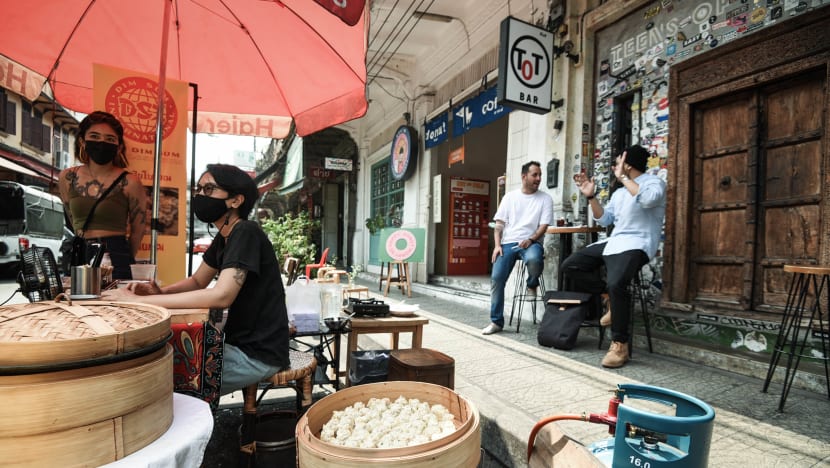
A new wave of COVID-19 cases hit Thailand in December last year after large clusters were detected in different parts of the country. They involved a shrimp market and gambling dens among other places.
The situation prompted the government to roll out various tough measures to contain the pandemic. These included an order to close pubs and bars and a ban on alcohol consumption at eateries in areas at risk of infection.
Bangkok was among the affected provinces. The announcement was made on Jan 1 late at night by the city governor before taking effect the following morning.
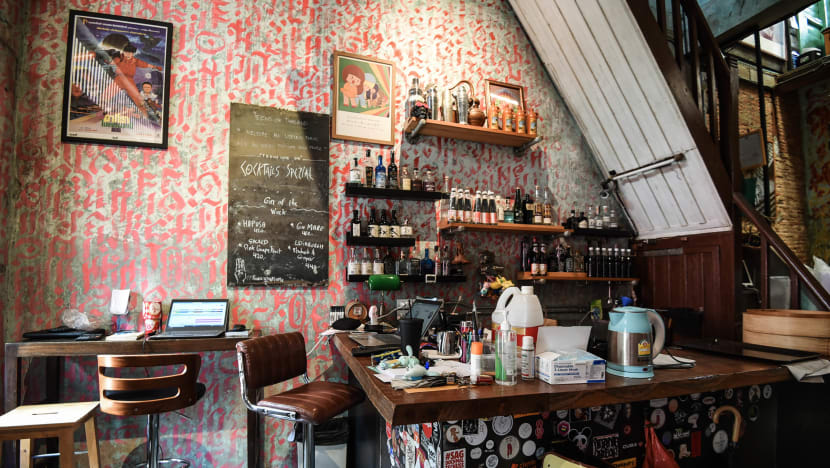
For Niks, who owns three cocktail bars in Bangkok, it felt like unemployment without any compensation. While his employees were paid compensation from the Social Security Fund, business owners like him - who continued to pay rent, utilities and the staff - were not eligible.
It was not until earlier this week that the government lifted the alcohol ban and allowed most pubs bars to reopen. Still, Niks said the dumplings will remain on the menu in case the same measures return to hurt his businesses.
READ: Thailand receives its first coronavirus vaccines
FROM COCKTAILS TO ICE-CREAM
Besides Teens of Thailand, several other bars were also forced to change their business model during the weeks-long closure.
Q&A, a speakeasy-style bar in one of Bangkok’s alleyways, turned itself into an ice-cream parlour to stay afloat. Its owner Attapon De-silva, who has spent the past 13 years bartending, spent nearly a month learning how to make ice-cream from scratch. He researched, read books and experimented with an ice-cream maker borrowed from a former colleague before launching Q&A’s sub-brand, QreAm.
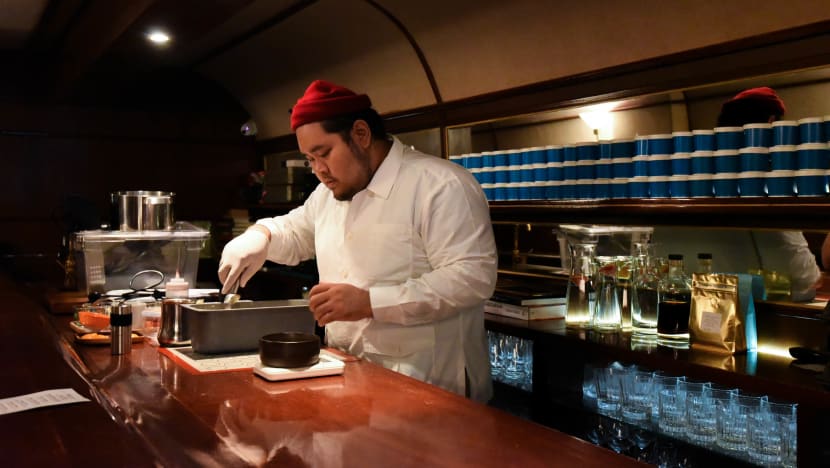
The idea of selling ice-cream came up in his conversation with his mother after the bar was ordered shut. “I asked her what I should sell and what are the things people like to eat,” he said. “She replied ‘perhaps ice-cream’ and I thought she was joking.”
In its initial phase, the ice-cream bar offers seven flavours from vanilla and chocolate to GNT sorbet. The latter is served with dehydrated lemon coated in sugar and edible flowers.
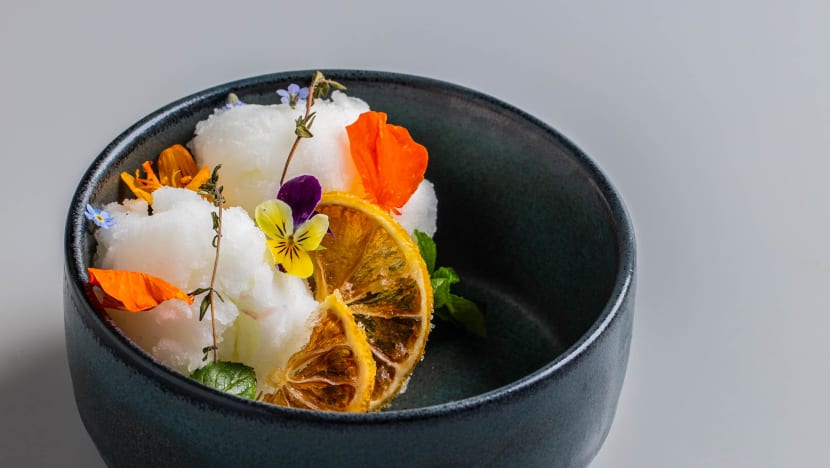
According to Attapon, each scoop of his ice-cream is infused with the identity of cocktail bars, especially the respect for finely selected raw materials and how they are put together to elevate the taste.
However, behind his beautiful creations lies an uncertain future. Although the cocktail bar is now able to operate again, Attapon and his staff have no idea how long it would take before another outbreak, another alcohol ban and another closure.
“I’m sure we won’t have just two waves of COVID-19. I’m quite confident this situation will remain with us for a while, years,” he said. “QreAm will remain with us forever. It wouldn’t just open during lockdown or whenever we can’t sell alcohol.”
NEW LAW PROHIBITS ONLINE ALCOHOL SALES
Since early last year, many businesses in Thailand have felt the impact of the COVID-19 pandemic. The international travel ban has caused many operators in the tourism and food and beverage sectors to lose their main income.
While many businesses expanded their presence online to reach more local customers, particularly during the lockdown, the likes of pubs and bars whose main source of income is alcohol found it more challenging to follow the market trend.
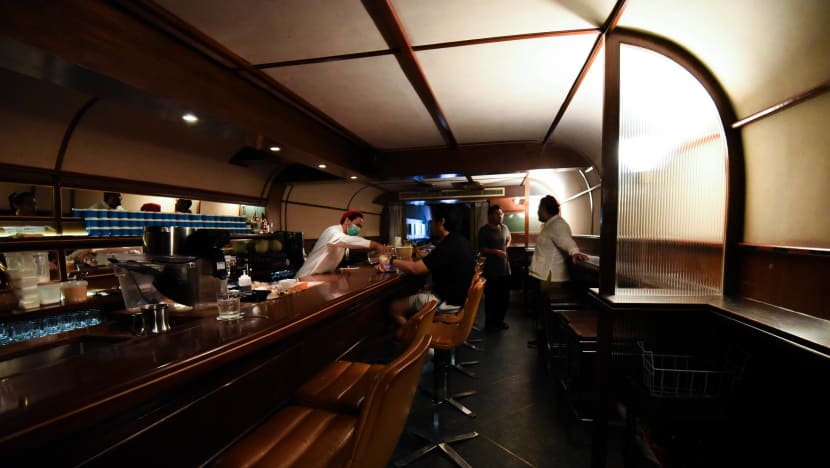
On Dec 7 last year, the sale of alcohol via electronic channels that are not carried out in person became illegal in Thailand, following an announcement by the Prime Minister’s Office published in the Royal Gazette.
The prohibition includes direct sales and attempts to promote alcoholic beverages online but excludes electronic payments at retail stores and eateries. According to the announcement, the ban was imposed to “prevent youths from easily accessing alcoholic beverages and reduce the impact caused by them”.
So for nearly two months when pubs and bars were ordered to close and alcohol consumption at eateries was banned, these businesses could not continue selling their alcoholic products online.
“We suffered a lot. We have a burden of taking care of many staff members,” said Asawin Rojmethatawee, co-founder of Tep Bar in Bangkok. “This doesn’t include the first round (of closure last year) when we scaled down our business a lot without letting anyone go.”
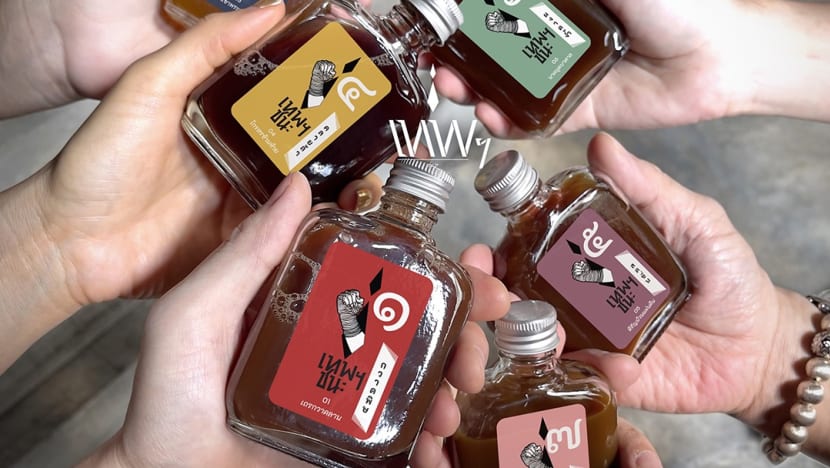
Tep Bar is well-known among hip bar hoppers for its cocktails inspired by local Thai ingredients and culture. Before the pandemic, about 80 per cent of its customers were foreign tourists. Asawin said his business now relies on only 20 per cent of its clientele but most of the expenses remain because he continues to hire all the staff.
Unable to sell alcohol online while the bar was closed, Tep Bar’s management team came up with a strategy.
“Our bar has already used Thai herbs. We’ve already worked with certified Thai traditional medicine practitioners to create our drinks. So we thought we should return to our roots without using alcohol,” Asawin said.
“We came up with a new business segment that is Thai herbal drinks with real potency and benefits. There are seven recipes offering different benefits of different herbs.”
READ: Thailand says it nears a COVID-19 vaccine passport, hopes to welcome tourists in Q3
The drinks are branded as Tep Chana Booster - a play on the Thai word "chana" or "win", which the government has used to name a few projects in its fight against COVID-19.
According to Asawin, the feedback has been so good that Tep Chana will be incorporated into the bar’s merchandise.
“Customers will be able to buy them home or drink them at the bar. Cafes in other provinces have ordered big batches of them for sale too. So, this has become our sub-brand, which can grow further,” he said.
BOOKMARK THIS: Our comprehensive coverage of the coronavirus outbreak and its developments
Download our app or subscribe to our Telegram channel for the latest updates on the coronavirus outbreak: https://cna.asia/telegram















